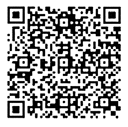September 1 Is Disaster Prevention Day
The Great East Japan Earthquake struck on March 11, causing major damage in various locations as well as the loss of many precious lives. In addition, public transportation was stopped in Tokyo, leaving many commuters stranded in the city and unable to return home. If a major earthquake strikes in the future in the Tokyo metropolitan area, where we live, the damage is expected to be extensive.
Preparing for an emergency on a regular basis is useful for improving disaster response measures and creating a town that is strong in the face of disaster.
Inquiries: Disaster Prevention Section, Tel: 5742-6695
|
Disaster Preparedness Begins with Protecting Yourself and Protecting Your Town with Neighbor
First of all, it is important to keep in mind the key points of disaster preparedness, namely, protecting yourself and protecting your town with your neighbors. It is necessary to be on familiar terms with your neighbors on a regular basis and help each other out. In addition, it is a good idea to discuss with your family everything that needs to be considered at the time of a major earthquake, such as the location of the local evacuation site, methods of confirming each other's safety, and preparation of emergency food and supplies, so that you can take action without panicking when an earthquake strikes.
Although it is difficult to prepare for every contingency, it is a good idea to try to prepare for an earthquake, starting from things that you can do in your own home and in your own community.
Transmitting Emergency Information on Disasters
Using public-address and siren systems that are set up in 132 locations in the city, Shinagawa City announces to all city residents such information as alarming/dangerous water levels of both Meguro-gawa River and Tachiai-gawa River as well as terrorism, missile, and emergency earthquake information from J-Alert (national early warning system), which is run by the Fire and Disaster Management Agency.
River Water Level Alert
Alerts are announced when a river's water level reaches an alarming/dangerous level due to heavy rains, etc.
If the water level of Meguro-gawa River or Tachiai-gawa River reaches an alarming level
• Announcement (in Japanese)
• Siren (15 seconds × 3 times × 3 times)
If the water level of Meguro-gawa River or Tachiai-gawa River reaches a dangerous level
• Announcement (in Japanese)
• Siren (1 minute × once)
Earthquake and Relevant Information
Earthquake information
Broadcast begins when an earthquake registers 4 or more on the Japanese seismic intensity scale at the Shinagawa City Office.
J-Alert emergency earthquake information
Broadcast begins when an earthquake registers lower 5 or more on J-Alert, which is run by the Fire and Disaster Management Agency.
• Chimes (same as the earthquake alert chimes played on TV)
• Announcement (in Japanese)
J-Alert tsunami information
• Siren (5 seconds × twice)
• Announcement (in Japanese)
Note: In an emergency, please obtain additional information from the Shinagawa City Web site, Shinagawa City Resident Channel on cable TV, etc.
Why Not Participate in Disaster Preparedness Drills in Your Community?
Comprehensive disaster preparedness drills are conducted in 13 districts in Shinagawa City.
The disaster preparedness drill in Ebara Dai-ichi District will be staffed by volunteer interpreters, so please participate even if you are not confident about your Japanese.
Date and time: October 16 (Sun.), 9:00 a.m. to 12 noon
Location: Rinshi no Mori Park (2-16 Koyamadai)
Program: Practice using a fire extinguisher to put out incipient fires, learn how to give emergency first aid (using an automated external defibrillator [AED]), take part in an evacuation drill in a smoke-filled room, etc.
Languages: English, Chinese, and Korean
Eligibility: Foreign residents who live, work, or go to school in Shinagawa City
Application: Send a fax or e-mail to the subsection in charge of international affairs in the Community Promotion Section (Tel: 5742-6691, Fax: 5742-6878, E-mail: chikikat@city.shinagawa.tokyo.jp) no later than September 22 (Thu.). Please include the phrase "Ebara Disaster Preparedness Drill" and give your name, address, telephone number, and to which language you would like interpreted.

Web Sites Offering Disaster Information in Various Languages
• Cabinet Office: www8.cao.go.jp/teiju-portal/jpn/index.html
Portal Site on Policies for Foreign Residents (in Japanese, English, Portuguese, and Spanish)
• Tokyo International Communication Committee: www.tokyo-icc.jp/ (English, Chinese, and Korean)
Announcements from the Tokyo Fire Department, Tokyo Bureau of Waterworks, and Tokyo Bureau of Sewerage as well as NHK news
• Tokyo metropolitan government: Cell phone version of its emergency manual for foreign residents (in English)

QR code
|



